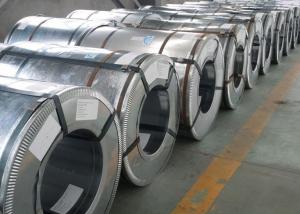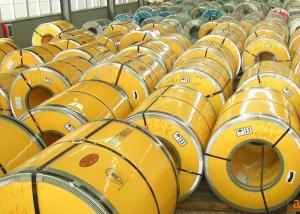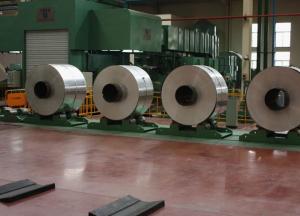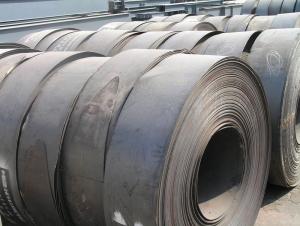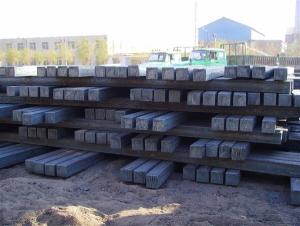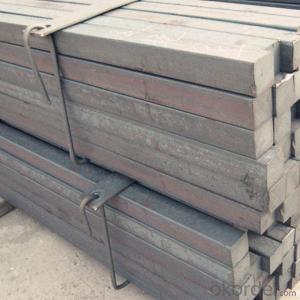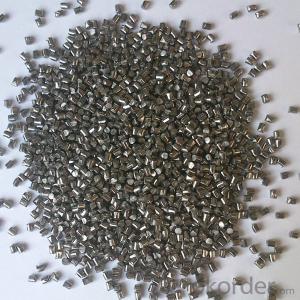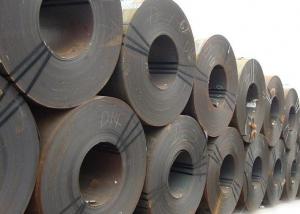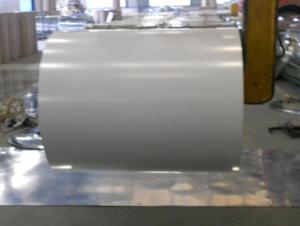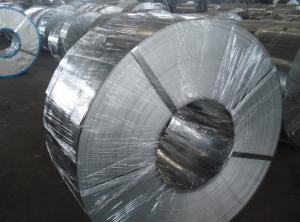Best Price For Aluzinc Steel EN 10125
- Loading Port:
- China Main Port
- Payment Terms:
- T/T or L/C
- Min Order Qty:
- 25mt m.t.
- Supply Capability:
- 50000 Metric Tons per Month m.t./month
OKorder Service Pledge
OKorder Financial Service
You Might Also Like
General Information Of Aluzinc Steel EN 10125
With Cold Rolled Steel as base metal,with the aluzinc coated, finally the plate steel is called galvalume steel. Galvalume steel is good capable of decoration, molding, corrosion resistance. It generally displays superior workability, durability and weather resistance.
|
Thickness 0.25-4.0mm (BMT) |
|
Aluzinc Coating 50-150g/m2 |
|
Width 900-1250mm |
|
Internal Diameter 508mm or 610mm |
|
Coil Weight 4-8MT |
|
Quality Commercial and structural quality |
|
Surface Treatment Oiled or Dry, Chromated, Anti-finger,Non-skinpass,/ Skinpass |
|
Standard JIS G 3321, ASTM A792M, EN 10215 |
|
Base Steel Grade SGCC,SGCD,DX51D+Z,DX52D+Z;S200GD,S220GD, S280GD,S350GD,CS,FS,SS |
Chemical Composition Of Aluzinc Steel EN 10125
|
C |
Si |
Mn |
P |
S |
|
0.04-0.06% |
0.01-0.03% |
0.18-0.22% |
0.014-0.016% |
0.006%-0.009% |
Technical Data Of Aluzinc Steel EN 10125
|
Yield Strength |
(Mpa) 280-320 |
|
Tensile Strength |
(Mpa) 340-390 |
|
Elongation |
20%-30% |
|
Out- of-Square |
Not exceed 1% Flatness |
|
Bow |
15mm max |
|
Edge Wave |
9mm max |
|
Centre Buckle |
8mm max |
|
Bending At 180 Degree |
No crack, purling and fraction |
Application Of Aluzinc Steel EN 10125
Aluzinc Steel can be widely used in transportation, light industry, civil usage and farming. It is also the perfect building material in construction for making roofing tile, steel profiles for wall partition, T-bar, studs, fireproof door, air conditioning duct and home appliances.
Packaging & Delivery Of Aluzinc Steel EN 10125
Full wrapped with anti-damped paper inside, iron sheet wrapped outside, and bundled with iron strips.
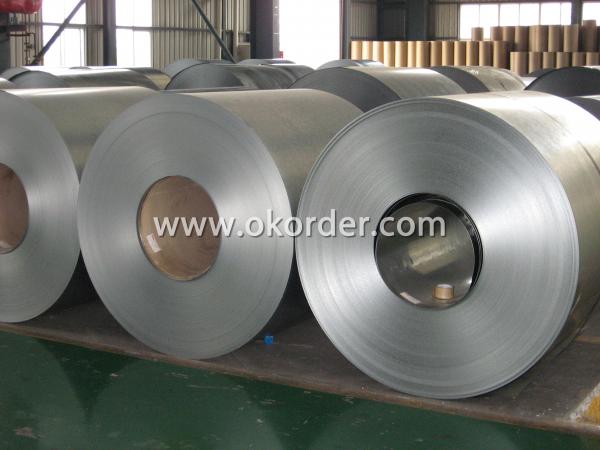
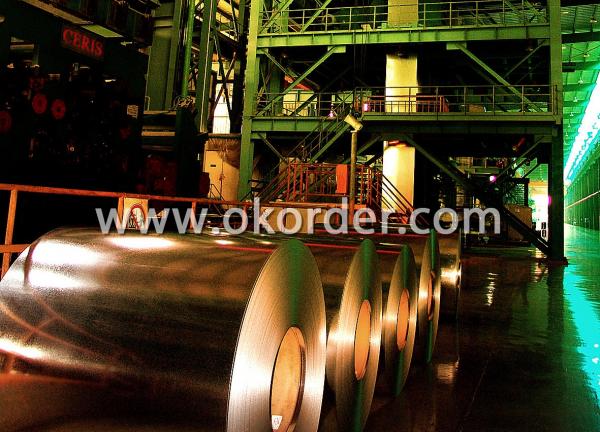
- Q:What are the applications of stainless steel in the food industry?
- Stainless steel is widely used in the food industry due to its numerous beneficial properties. It is commonly used for equipment and surfaces that come into contact with food, such as food processing machinery, countertops, sinks, and storage containers. Stainless steel is preferred in the food industry because it is corrosion-resistant, easy to clean and maintain, and highly hygienic. It does not react with food or alter its taste, ensuring the integrity and safety of the products. Additionally, stainless steel is durable, heat-resistant, and can withstand extreme temperatures, making it suitable for a wide range of food processing applications.
- Q:How is steel used in the construction of railway stations?
- Steel is used in the construction of railway stations for various purposes such as structural support, reinforcement, and the fabrication of platforms, tracks, and station components. Its high strength and durability make it ideal for withstanding heavy loads, ensuring the safety and stability of the station infrastructure.
- Q:What are the common types of steel products used in the marine industry?
- The common types of steel products used in the marine industry include marine-grade stainless steel, galvanized steel, and high-strength low-alloy (HSLA) steel. These materials are chosen for their corrosion resistance, durability, and structural strength, making them suitable for various marine applications such as shipbuilding, offshore structures, and marine equipment.
- Q:What are the different types of steel fencing materials?
- There are several types of steel fencing materials, including wrought iron, galvanized steel, aluminum-coated steel, and stainless steel. Each type has its own unique characteristics and benefits, such as durability, corrosion resistance, and aesthetic appeal.
- Q:How do steel products contribute to the electrical and power transmission sector?
- Steel products play a crucial role in the electrical and power transmission sector due to their durability, strength, and conductivity. They are used in the construction of power transmission towers, electrical poles, and substations, providing a sturdy framework for overhead power lines. Steel cables and conductors, known for their high electrical conductivity, are used for transmitting electricity over long distances without significant power loss. Additionally, steel is used in the production of transformers, generators, and other electrical equipment due to its magnetic properties and ability to withstand high temperatures. Overall, steel products contribute to the reliability and efficiency of the electrical and power transmission sector.
- Q:How are steel products used in the manufacturing of appliances and consumer goods?
- Steel products are essential in the manufacturing of appliances and consumer goods due to their strength, durability, and versatility. They are used to construct the framework and outer casings of appliances, providing structural integrity and protection. Steel is also used in the production of various components and parts, such as heating elements, motors, and hinges, ensuring reliability and longevity. Additionally, steel can be molded and shaped into different forms, allowing for intricate designs and customization in consumer goods. Overall, steel products play a crucial role in enhancing the performance, functionality, and aesthetics of appliances and consumer goods.
- Q:How do steel products contribute to the transportation industry?
- Steel products contribute to the transportation industry in various ways. Firstly, steel is used in the manufacturing of vehicles, such as cars, trucks, trains, and ships, providing them with structural strength and durability. Steel's high strength-to-weight ratio makes it ideal for constructing lightweight yet resilient bodies, frames, and components, enhancing overall safety and performance. Additionally, steel is employed in the production of infrastructure elements like bridges, tunnels, and railway tracks, ensuring their sturdiness and longevity. Overall, steel products play a crucial role in enhancing the reliability, efficiency, and safety of transportation systems worldwide.
- Q:How do steel products contribute to the retail and commercial sector?
- Steel products contribute to the retail and commercial sector in multiple ways. Firstly, steel is widely used in the construction industry to build retail and commercial buildings, providing durable and sturdy structures. Steel beams, columns, and frames are essential for supporting the infrastructure, ensuring safety and longevity. Moreover, steel is a popular material for shelving units, display racks, and storage systems used in retail stores and warehouses. Its strength and versatility allow for efficient storage of products, maximizing space utilization and facilitating easy access to merchandise. In addition, steel plays a crucial role in the manufacturing of various retail products. From appliances and electronics to furniture and fixtures, steel is used in the production of a wide range of items. Its durability and aesthetic appeal contribute to the quality and attractiveness of these products, enhancing their marketability. Furthermore, steel is essential for transportation and logistics in the retail and commercial sector. From shipping containers and cargo containers to vehicles and trailers, steel is used extensively in the transportation of goods. Its strength and resistance to corrosion ensure the safe and efficient movement of products across different locations. Overall, steel products make significant contributions to the retail and commercial sector by providing reliable infrastructure, efficient storage solutions, high-quality retail products, and reliable transportation systems.
- Q:How do steel products contribute to the recycling industry?
- Steel products contribute to the recycling industry by being highly recyclable themselves. Steel can be recycled indefinitely without losing its properties, making it a valuable resource in reducing the need for new steel production. This helps conserve natural resources, reduce energy consumption, and minimize greenhouse gas emissions associated with steel manufacturing. Additionally, the recycling of steel products helps divert waste from landfills and promotes a circular economy by enabling the creation of new steel products from recycled materials.
- Q:What are the applications of steel wire mesh in acoustic panels?
- Steel wire mesh is commonly used in acoustic panels for several applications. Firstly, the mesh provides structural support to the panels, enhancing their durability and stability. Additionally, the mesh helps to distribute sound evenly across the panels, improving their acoustic performance by reducing echoes and reverberations. The open design of the mesh also allows for proper airflow, which is crucial in ensuring the panels do not impede the transmission of sound. Overall, steel wire mesh plays a vital role in enhancing the functionality and effectiveness of acoustic panels.
1. Manufacturer Overview |
|
|---|---|
| Location | Zhejiang, China |
| Year Established | 1999 |
| Annual Output Value | US$1 Million - US$2.5 Million |
| Main Markets | Europe; Africa; Mid East; Southeast Asia |
| Company Certifications | ISO9001;ISO14001 |
2. Manufacturer Certificates |
|
|---|---|
| a) Certification Name | |
| Range | |
| Reference | |
| Validity Period | |
3. Manufacturer Capability |
|
|---|---|
| a)Trade Capacity | |
| Nearest Port | Shanghai Port |
| Export Percentage | 41% - 50% |
| No.of Employees in Trade Department | 50-80 |
| Language Spoken: | Chinese, English |
| b)Factory Information | |
| Factory Size: | Above 100,000 square meters |
| No. of Production Lines | 5 |
| Contract Manufacturing | OEM Service Offered |
| Product Price Range | Average |
Send your message to us
Best Price For Aluzinc Steel EN 10125
- Loading Port:
- China Main Port
- Payment Terms:
- T/T or L/C
- Min Order Qty:
- 25mt m.t.
- Supply Capability:
- 50000 Metric Tons per Month m.t./month
OKorder Service Pledge
OKorder Financial Service
Similar products
New products
Hot products
Related keywords

